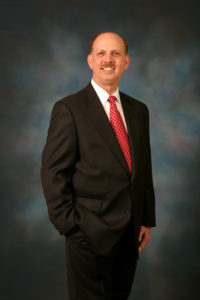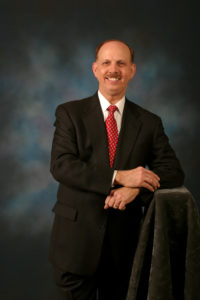10 Biggest Mistakes Dentists Make That Cause DOH Complaints
 By George F. Indest III, J.D., M.P.A., LL.M., Board Certified by The Florida Bar in Health Law
By George F. Indest III, J.D., M.P.A., LL.M., Board Certified by The Florida Bar in Health Law
In representing dentists in complaints against their licenses, we see similar cases over and over again. The dentists could have avoided many Department of Health (DOH) complaints that may wind up before the Board of Dentistry.
These are the ten biggest mistakes we see dentists make, leading to DOH complaints being filed and investigations being opened against them.
1. Requiring patients to pay an outstanding dental bill before releasing a copy of their dental records. This is prohibited by law. However, the patient can be charged for the copy of the record, up to $1.00 per page for the first 25 pages, ($.25 per page after that), and actual costs of reproduction for other forms of dental records (X-rays, CD’s photographs).
2. Not having the original patient x-rays or a good digitized copy. Believe it or not, many dentists we have represented either gave their x-rays to the patient or sent them to a subsequent treating dentist. Always release copies (for which you may charge). Always keep the originals. (Not having them when needed). With the expanding use of digital x-rays stored in an electronic dental record, this is not so problematic as it was in the past.
3. Accepting a new patient who has had more than one other primary dentist within the prior five years (when the patient hasn’t relocated to a new geographical area). Unhappy, disgruntled, unrealistic patients will change dentists often. Identify these patients early and refuse to accept them as your patients or terminate them as patients as soon as you identify them. Closely related to this is accepting or failing to terminate the “disgruntled” patient. If a patient is a chronic complainer or threatens to sue or file a complaint, this is a patient who will, most likely, never be satisfied. Terminate this patient immediately.
4. Failing to fully inform the patient of possible less-than-desirable outcomes (documenting this in writing, preferably signed by the patient). This includes but is not limited to the fact that there may be subsequent pain or infection, that the bite may be less than perfect and may have to be adjusted, that a bridge or other fixture may not fit correctly and may need to be adjusted, etc.
5. Failing to have and use appropriate consent forms including, but not limited to:
a. Refusal of a treatment consent form
b. Consent for less than optimal dental treatment (to use when a patient refuses to follow dentist’s recommended treatment plan). This is also called “Refusal of Recommended Treatment.”
c. Root Canal consent form
d. Tooth Extraction
e. Endodontic procedures
f. Dentures and bridges
6. Failing to refund dental fees when complaining patients demand it. We do not routinely recommend that you refund dental fees based solely on a patient’s demand that you do so. In many cases, the patient will have benefited from the treatment, procedure, or appliance, and should pay for it. However, in many instances, this must be a business decision based on risk management principles. It is always a good idea to weigh the amount in attorney’s fees, time, and aggravation, mental anguish, or increase in insurance premiums that will result if you fail to refund demanded fees. Base your decision on a calculation of how likely it is that a complaint will result.
7. Failing to have good, legible, comprehensive treatment records on the patient. A documented, comprehensive written treatment plan signed by the patient is mandatory in all cases except emergency cases and specialty consults. This also includes failing to prepare and maintain a periodontal chart on a patient. If you are going to treat and follow a patient for more than an emergency visit or a specialty consultation, you should perform a periodontal exam. Just as important, the Board of Dentistry will expect you to chart this on a periodontal chart.
8. Failing to document the type of and amount of a drug administered, a sedative used, a compound used, etc. Be sure this is accurately stated in your chart. Be sure this is accurately billed with the correct billing code.
9. Failing to give patients a copy of their dental chart within a reasonable period of time after requested. (The courts usually define “reasonable” as 14 calendar days or ten business days; however, the Board of Dentistry allows up to 30 days. If you can reasonably provide it earlier, do so, documenting the date.
10. Producing only part of the complete dental chart to the patient, subsequent treating dentist, or DOH investigator when requested. This has become more problematic as dentists’ convert more and more into electronic dental records. Be sure to print out and produce all treatment plans, histories, physical exams, family history questionnaires, medical history questionnaires, informed consent forms, photographs, treatment plans, x-rays, periodontal charts, progress notes, daily journal entires, bills, correspondence with health insurers or other third-party payers. Also included are prior dentists’ records received, operative reports, or any other documents you have relating to the patient’s treatment.
These are not hard and fast rules. We cannot assure you that you will never receive a DOH complaint, a patient complaint, a grievance, or a lawsuit if you follow them. However, if you follow them, you will probably find your patients happier, your practice calmer and more productive, and your risks of having a complaint filed significantly reduced or eliminated.
Click here to read one of my prior blogs about DOH complaints and investigations.
Contact Health Law Attorneys Experienced with Investigations of Dentists and Health Professionals Today.
The attorneys of The Health Law Firm provide legal representation to dentists, dental hygienists, physicians, nurses, nurse practitioners, CRNAs, pharmacists, psychologists and other health providers in Department of Health (DOH) investigations, Drug Enforcement Administration (DEA) investigations, FBI investigations, Medicare investigations, Medicaid investigations and other types of investigations of health professionals and providers.
To contact The Health Law Firm, please call (407) 331-6620 or (850) 439-1001 and visit our website at www.TheHealthLawFirm.com.
About the Author: George F. Indest III, J.D., M.P.A., LL.M., is Board Certified by The Florida Bar in Health Law. He is the President and Managing Partner of The Health Law Firm, which has a national practice. Its main office is in the Orlando, Florida, area. www.TheHealthLawFirm.com The Health Law Firm, 1101 Douglas Ave. Suite 1000, Altamonte Springs, FL 32714, Phone: (407) 331-6620 or toll-free: (888) 331-6620.
KeyWords: Legal representation for Department of Health (DOH) investigations, legal representation for DOH complaints, licensure defense attorney, DOH defense attorney, representation for DOH cases, DOH complaint representation, representation for dentists, dental law defense attorney, dentist representation, health law defense attorney, legal representation for health care professionals, legal representation for disciplinary actions against your license, legal representation for license revocation, licensure defense attorney, administrative complaint attorney, legal representation for administrative complaints, legal counsel for Board representation, Board of Dentistry representation, Board of Dentistry defense lawyer, The Health Law Firm, health law defense attorney, Florida health law attorney, reviews of The Health Law Firm, The Health Law Firm attorneys review
“The Health Law Firm” is a registered fictitious business name of and a registered service mark of The Health Law Firm, P.A., a Florida professional service corporation, since 1999. Copyright © 2021 The Health Law Firm. All rights reserved.


 By George F. Indest III, J.D., M.P.A., LL.M., Board Certified by The Florida Bar in Health Law
By George F. Indest III, J.D., M.P.A., LL.M., Board Certified by The Florida Bar in Health Law




